Novel set in Melbourne predicted 2022 global tensions
A war involving NATO, Russia and China and a crippling fuel shortage — no it’s not 2022, it’s 1957 and is eerily laid out in a novel set in Melbourne.
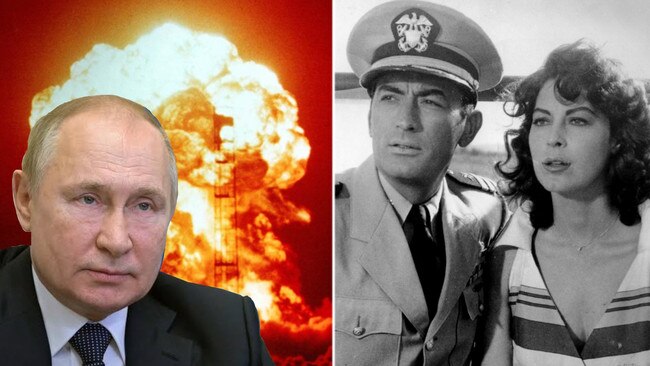
News
Don't miss out on the headlines from News. Followed categories will be added to My News.
An all-out war involving NATO, Russia and China, a nuclear submarine under Australian command, the government rolling out injections, and a crippling fuel shortage.
These anxieties are playing on the minds of Australians in 2022, but they also featured in a mid 20th-century novel, set in Melbourne, which eerily laid out how humanity might be totally destroyed by nuclear fallout.
In his 1957 book On The Beach, British novelist Nevil Shute painted a dystopian world in which Melbourne is the last city on Earth unaffected by a creeping, lethal radiation cloud.
The story’s uncanny similarities with current global tensions, and its disastrous ending, stand as either a grim warning or a fantastical coincidence.
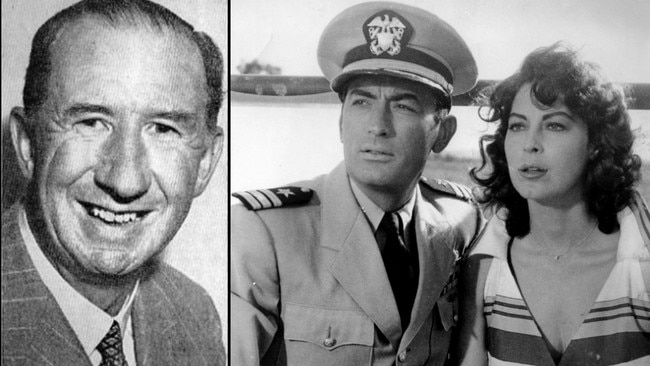
CITY OF THE LIVING
Perhaps Melbourne has previously been crowned World’s Most Liveable City for a reason other than sport and coffee.
In Nevil Shute’s On The Beach, Melbourne was not only the best city in the world, but the last.
Set in 1963, six years into the future when the book was published, the story follows several characters dealing with the impending end of humanity.
A brief, intense nuclear war involving the US, the Soviet Union and China has wiped out the northern hemisphere, draping half the globe in a deadly nuclear fallout that has presumably killed everyone north of the equator, and is gradually floating south.
Melbourne is one of the last remaining inhabitable places on Earth.
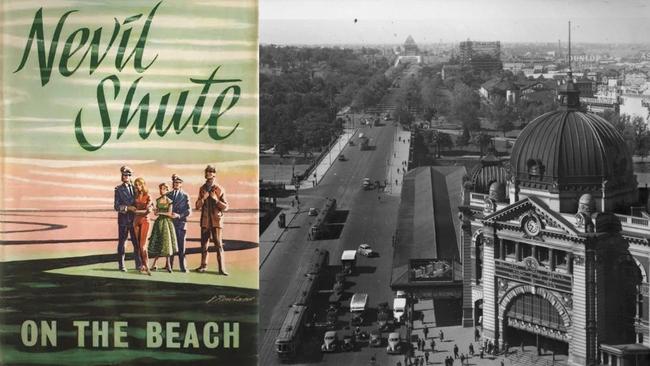
While the exact circumstances of Shute’s fictional war are blurry, it is said to have been started by an Armenian strike against the US.
Soon afterwards, a misunderstanding between NATO and the Soviet Union led to a nuclear strike against the USSR, which led to retaliation and another conflict with China.
At one point an American nuclear submarine is put under Australian command, a plot point echoed by the federal gvernment’s commitment to get our own nuclear subs.
Some might say we’ll be waiting so long for the submarines, humanity risks going extinct before they arrive.
But it’s not the only coincidence found in On The Beach.
The gradual radiation onset prompts a jab rollout of a very different kind: the government gives everyone a free injection or a pill that will kill them quickly if they fall ill, to save them the prolonged and painful demise with radiation sickness.
And Melburnians are hit with a crippling fuel shortage as the apocalyptic fallout gradually envelopes the globe.
One might muse that today’s forecasts of more than $2 per litre for petrol would be beyond even the wildest dystopian dreams of author Nevil Shute.
Remarkably, staff shortages in On The Beach’s Melbourne don’t seem nearly as bad as the real Melbourne in 2022.
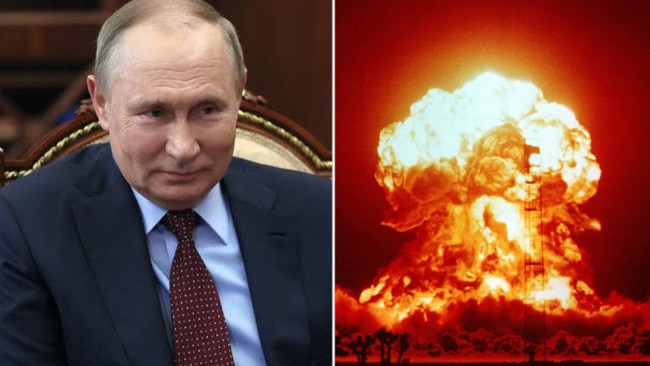
THE LAST FORTRESS
Nevil Shute, a former aeronautical engineer from Middlesex, UK, settled with his family in Langwarrin in Melbourne’s southeast in 1950.
The paranoia of the Cold War, which has recently been revived in 2022, was the primary inspiration behind On The Beach; a Zeitgeist which also inspired films such as the drama Fail-Safe and the comedy Dr Strangelove.
But Melbourne had previously been earmarked as a “last resort” fortress of retreat during conflict.
Under a briefly considered plan drawn up during WWII Australians would have retreated to the southern extremities of the continent to regroup in the event of a Japanese invasion – an idea often referred to as the Brisbane Line.
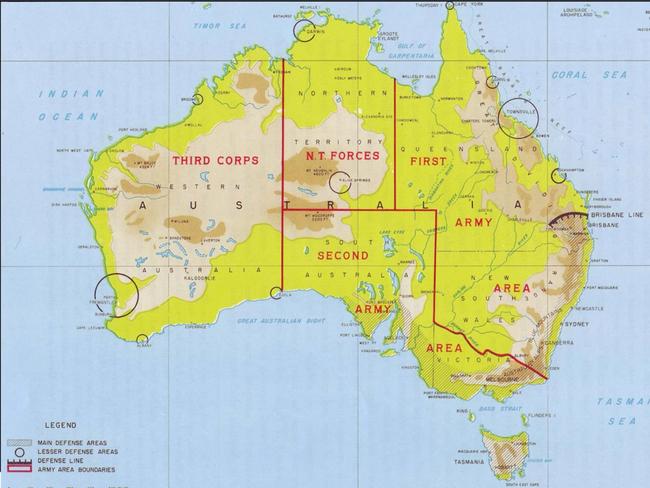
The seriousness of the idea, and the extent to which is was considered by wartime leaders, is still debated.
Similarly, the degree to which the Brisbane Line story influenced Shute’s writing is unknown, but the warning it made against nuclear conflict is clear.
Spoiler alert:
At the end of the book, everybody dies.
One character commits suicide with his wife after the painstaking decision to kill his young daughter to save her from prolonged radiation sickness.
The captain of the submarine takes his vessel out to sea and sinks it, going down with the ship.
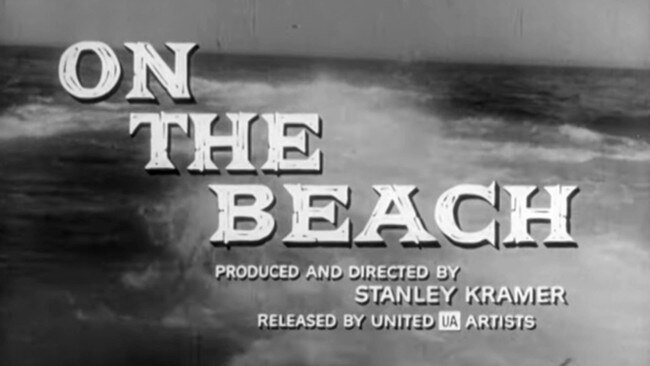
Ultimately, it is presumed, humanity is wiped out.
So powerful was the Cold War-era novel, it was adapted into a 1959 film starring Gregory Peck, Fred Astaire and Ava Gardner, much of which was filmed in Melbourne and surrounds, including Frankston and Berwick.
A 2000 remake, set in 2005, starred Bryan Brown and Rachel Ward.
The 1959 film, although making a financial loss, had a deep social impact and left viewers haunted by the prospect of nuclear war.
As one 1959 magazine review of the movie put it: “The spectator is left with the sick feeling that he’s had a preview of Armageddon, in which all contestants lost”.




